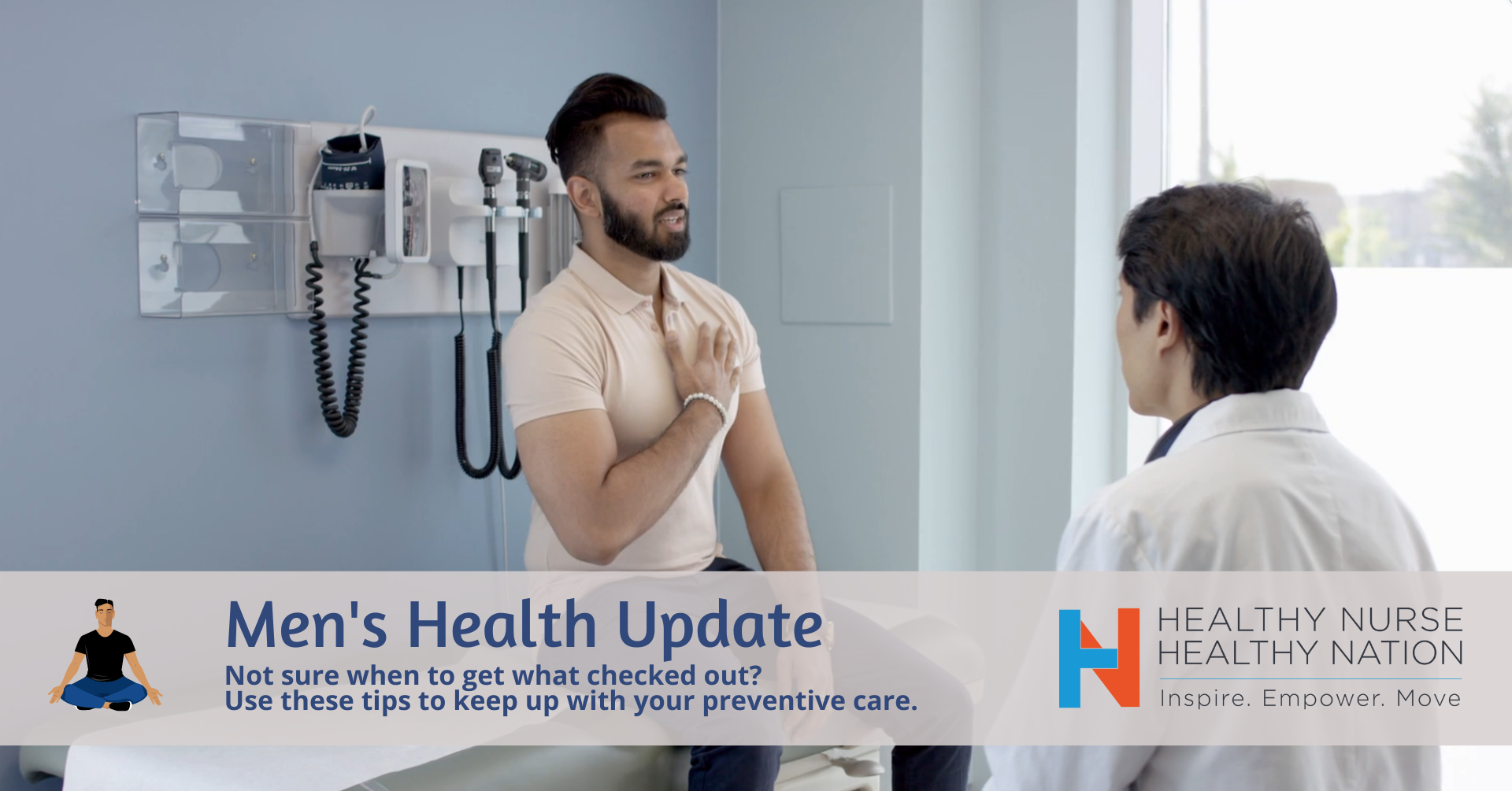Healthy Nurse, Healthy Nation™ Blog - Men’s Health Update
Published
Not sure when men need to get what checked out? Use this blog and its resources to help stay up to date on men's preventative care.
Although nurses understand the importance of prevention and early detection, 25 percent of us are not staying on top of our own health screenings and check-ups, according to the American Nurses Association’s 2016 Health Risk Appraisal. Men, specifically, are most at-risk for skipping life-saving visits to their health care providers.
“Men typically see themselves as the family provider and often encourage their partners to get mammograms and screenings. They support taking their children to the pediatrician, but often neglect their own health,” says Ana Fadich, MPH, CHES, Vice President of Men's Health Network, a Washington, D.C.-based nonprofit organization that educates men and their families about the importance of men's health.
Making the health care industry more male-friendly
There are issues within the health care industry that make seeing a provider less appealing to men, for example:
- Waiting rooms are geared toward women. Waiting rooms are typically painted in pastel colors and have women’s magazines displayed on coffee tables. Wall décor tends to be more geared toward women as well.
- Most providers have 9 to 5 hours. Men who work during the day have to take time off or leave work early to get screenings. Health care providers’ weekend office hours are often limited or nonexistent.
- Providers need to probe men to talk about their health issues during the appointment. Women are more likely to freely talk about their concerns for themselves and their children, while men may minimize their symptoms.
The biggest issues affecting the health of men today.
- Mental Health - “Typically, men are not ones to come out and talk about their feelings, so they tend to hold everything inside,” says Fadich. Not speaking about their emotions can lead to depression or even seemingly unrelated issues, such as erectile dysfunction. Depression can hit male nurses hard. If they work overnight shifts, sleep problems can affect their mood or general outlook. Similarly, if they experience a lot of trauma in their role, that can lead to mental health issues.
- Prostate Health - For middle-aged men, prostate health is an important topic. It’s not just prostate cancer, but an enlarged prostate that can be concerning and lead to problems with urination.
- Cardiovascular Issues - Fadich says, “Some men may not be in the routine of getting exercise and eating healthfully, so we're seeing a lot more obesity. Plus, as men age it's easier to put on weight than it is to lose it, so maintaining a healthy weight takes more effort.”
- Environmental Issues (Smoking and Alcohol Abuse) - “We've seen that correlation between mental health and the fact that men aren't talking about their problems, so they'll turn to smoking cigarettes or drinking alcohol and use to try to relieve the stress,” says Fadich. According to the American Cancer Society, certain cancers affect men and women at different rates.
In addition to making appointments with a provider, men should perform the following self-checks monthly:
- Testicles: To find lumps in their earliest stages.
- Skin: To look for signs of changing moles, freckles, or early skin cancer.
- Oral: To look for signs of cancerous lesions in the mouth.
- Pectorals: To find abnormal lumps as early as possible.
See which health screenings and immunizations you may need with USDHSS' My Healthfinder. Also discuss with your healthcare provider any additional preventive care you may require.
For more information on men’s health see the Men's Health Network, CDC Adult Immunization Schedule by Age and CDC Are You Up to Date on Your Preventive Care?.
RELATED: How can you help engage men in their preventive care? Read our blog. Need some inspo? Read how Rick Ackerman, RN prioritizes his health and wellbeing.
Was this helpful? Share it with a nurse you know by clicking on the social media links on the left side of the page. Let us know what you think on our Facebook, Twitter, or Instagram. Tag us with #healthynurse.
Updated 5/7/25

Have you joined Healthy Nurse, Healthy Nation (HNHN) yet? Join us today!
Sign up for our monthly challenges!
Blog Quality of Life
06/05/2017 10:46am CDT



Post a Comment or Question